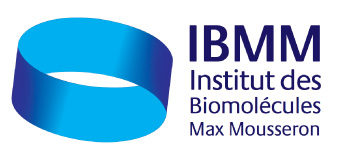The team of Muriel Amblard and Anthony Martin publishes in Nature Cancer!
PROTACs-PI3Kγ open a new pathway for targeted treatment of acute myeloid leukemia (AML)
Acute myeloid leukemia (AML) is the most common leukemia in adults. Recent medical advances have achieved up to 50% 5-year survival rates. However, this rate still needs improvement, especially for individuals aged 60 and over, whose 5-year survival rate is only 10%, due to the high toxicity of currently available chemotherapeutic agents. In this context, the teams of Dr. Alexandre Puissant at the Saint-Louis Research Institute (Paris) and Dr. Kris Wood at Duke University (Durham, USA) have identified the PI3Kγ-Akt pathway as a vulnerability in AML. Additionally, since the expression of the PI3Kγ kinase is limited to the myeloid compartment, it represents an ideal target for the development of targeted therapies. Due to the inefficacy of selective inhibitors of this kinase, a collaboration with IBMM (Dr. Anthony Martin and Dr. Muriel Amblard) led to the discovery and evaluation, both in vitro and in vivo, of the first PROTAC targeting PI3Kγ. These studies demonstrate the effectiveness of this PROTAC in monotherapy for eradicating AML cells and also highlight its synergistic action when combined with certain first-line treatments such as venetoclax. Our study emphasizes that protein degradation strategies, like targeting PI3Kγ, can be far superior to simple inhibition and that this approach could offer therapeutic benefits to patients suffering from AML, especially in combined therapies.
1Targeting a lineage-specific PI3Kγ-Akt signaling module in acute myeloid leukemia using a heterobifunctional degrader molecule. Lois M. Kelly, Justine C. Rutter, Kevin H. Lin, et al. Nature Cancer, 2024, in press – doi: 10.1038/s43018-024-00782-5
Also see the blog post @ Springer Nature, ‘Behind the Paper’ by Lois M. Kelly, the first author of this study.”

